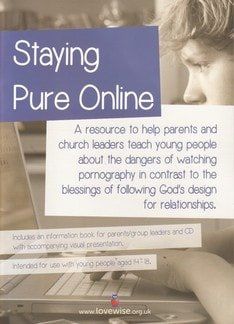Can you recall the moment you heard some startling news? Perhaps it was the destruction of the Twin Towers in New York or the car crash that killed Princess Diana. The moment is imprinted on your memory.
My own ‘electric moment’ was a lecture on Earth Science I heard over 25 years ago as a physics undergraduate (no, sorry, this article is not written by a teenager!). I recall the classroom and the bearded lecturer spilling long equations on the blackboard which ‘proved’ that the earth was billions of years old. I found myself in crisis. I couldn’t see how this great age could be reconciled with the Bible.
That day I began a journey — to understand what the Bible teaches about origins and why evolutionary theories have such a hold on our culture.
My crisis wasn’t unique. Many Christian students face this dilemma. Let me share with you three things I have learned on this journey, hoping this will help you prepare for the challenges you will certainly face.
What does Scripture teach?
Firstly, we need to know what God’s Word says about the creation of his world. We must not limit our studies to Genesis 1-3 but search all the Scriptures, including the New Testament and the often-neglected wisdom literature of the Old Testament — which is full of references to the glory of God in creation.
When we do this, it is impossible to escape the truth summed up by Exodus 20:11, ‘For in six days the Lord made the heavens and the earth, the sea, and all that is in them and rested the seventh day’.
Secondly, it is clear from Scripture that by the seventh day creation was finished: ‘Thus the heavens and the earth, and all the host of them, were finished. And on the seventh day God ended his work which he had done’ (Genesis 2:1-2).
Of course, God built into his creatures the capacity to adapt to different environments. Compare, for example, short-haired dogs with the long-haired arctic husky; or the white arctic hare with its brown cousins elsewhere.
This limited ability to change (sometimes misleadingly called microevolution) is evidence not of evolution but of the Creator’s marvellous care for his creatures.
Real science
But nature is not able to change one kind of creature into another — macro (large-scale) evolution is ruled out. This is not only the implication of Scripture but also the experience of real science. For example, intensive breeding programmes can produce many changes and new breeds in a given kind of plant or animal, but it never creates entirely new plants or animals.
Thirdly, the creation we study today is twisted by the Fall — it ‘groans’ and is in ‘bondage to decay’ (Genesis 3; Romans 8:21-22). Left to itself, therefore, the universe will increase in disorder.
Evolution, by contrast, demands ever-increasing order. But the universal laws of physics support the implications of Scripture rather than the speculations of evolution.
Fourthly, Scripture teaches a global catastrophe, the flood of Genesis 6-8. We are thus led to expect evidence of a past massive upheaval of the earth’s surface — and there is ample evidence of this in rock strata and fossils everywhere on earth.
These are old orthodox interpretations of Scripture but they are convincing and leave no room for evolutionary theories.
Read widely
My second piece of advice is to read widely. There are many helpful books on creation, some of which are listed below. In these books well-qualified scientists explain how evidence from both science and nature fits within the biblical creation framework. They also expose the weakness of theories that are presented in the text books as certainties.
There are also resources on the internet, including an approach called Intelligent Design which argues that living things are far too complex to have come about by chance (as evolution claims).
I would also encourage a critical reading of evolutionist writers. Read the first chapters of Darwin’s Origin of Species with a critical eye and spot the fatal analogy which led this man completely astray.
Again, Richard Dawkins is a militant atheist and popular advocate of evolution. Don’t let him intimidate you. In many places you will find his statements support creation without intending to!
Blurred logic
The heat of his passion against God all too easily bubbles to the surface — revealing his bias and blurred logic. His descriptions of God’s wonderful world may even gladden your heart!
Now there’s a glorious irony — you may find yourself worshipping the living God while reading Dawkins’ book The blind Watchmaker. You will finish it strengthened in your faith, because you will see that there is no good reason to reject Scripture’s account of creation.
All this will leave you wondering why our culture is so keen to believe the lie of evolution. This leads to my final piece of advice — understand why evolutionary theories hold such power over people today. I will deal with this question in a further article.











